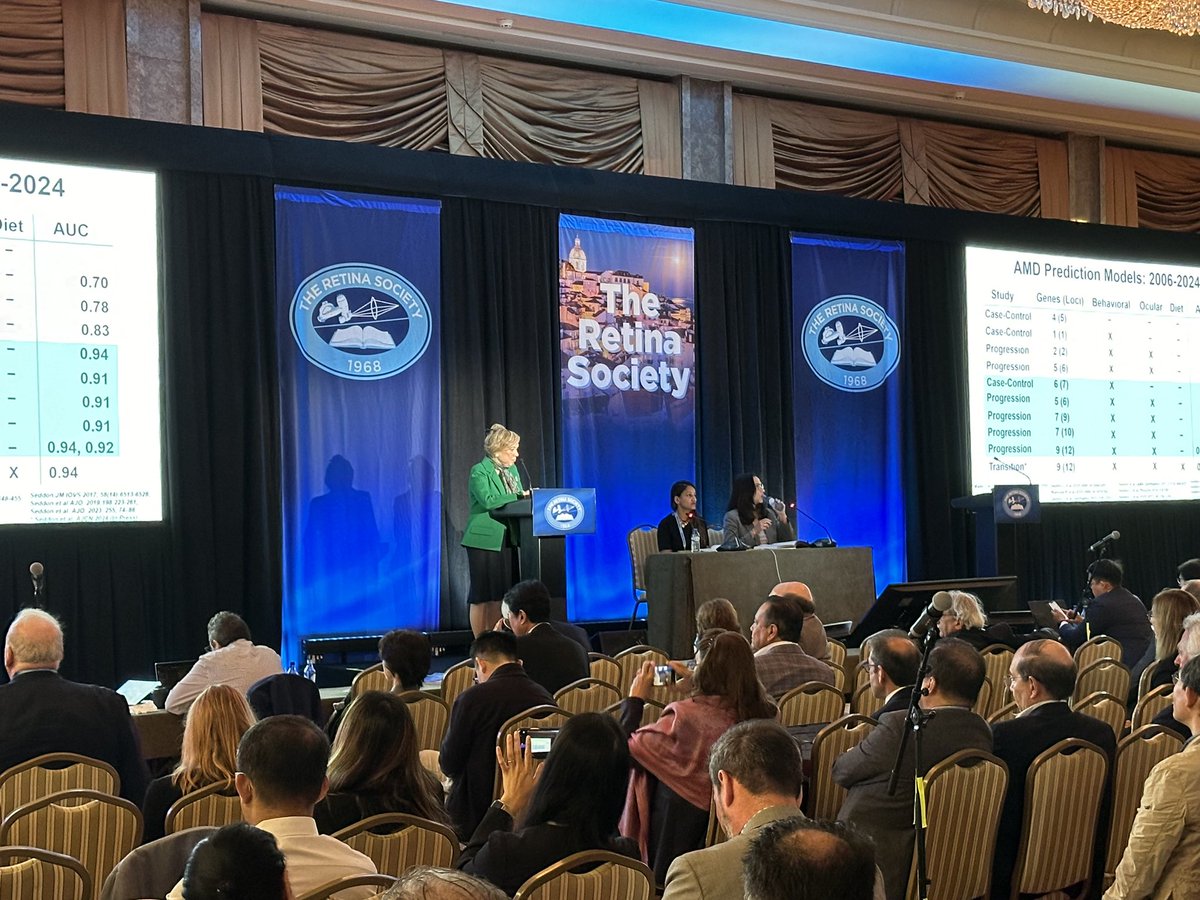
Jason Hsu
@jasonhsumd
Co-Director of Retina Research @Wills_Eye | Retina Surgeon @MidAtl_Retina | Associate Professor @JeffersonUniv
ID: 1185685031462866945
http://midatlanticretina.com 19-10-2019 22:32:30
125 Tweet
563 Followers
108 Following


The risk of post-injection endophthalmitis doesn’t increase linearly as patients receive more injections but is higher early on and lower later in the course of treatment. Check out our theories: authors.elsevier.com/a/1iud3amCtQzew Rachel Israilevich Hana Mansour Yoshihiro Yonekawa, MD, FASRS Wills Eye Hospital


Thanks SruthiArepalliMD Retinal Physician for highlighting our study which found that cumulative endophthalmitis risk seems to decrease with greater number of intravitreal injections. Check out the article for some of our hypotheses

New #OphthalmologyJournal #Podcast! Matthew Feng, MD interviews Bita Momenaei, MD & Jason Hsu on the incidence, timing, risk factors, and outcomes of recurrent retinal detachment after phacoemulsification aaojournal.org/audio-do/recur…

Concept of suprachoroidal injection of viscoelastic in rhegmatgenous retina detachment to create a temporary buckle without need for gas or positioning. Terrific presentation of 6 cases by Rajeev Muni at #RSLisbon2024 TheRetinaSociety
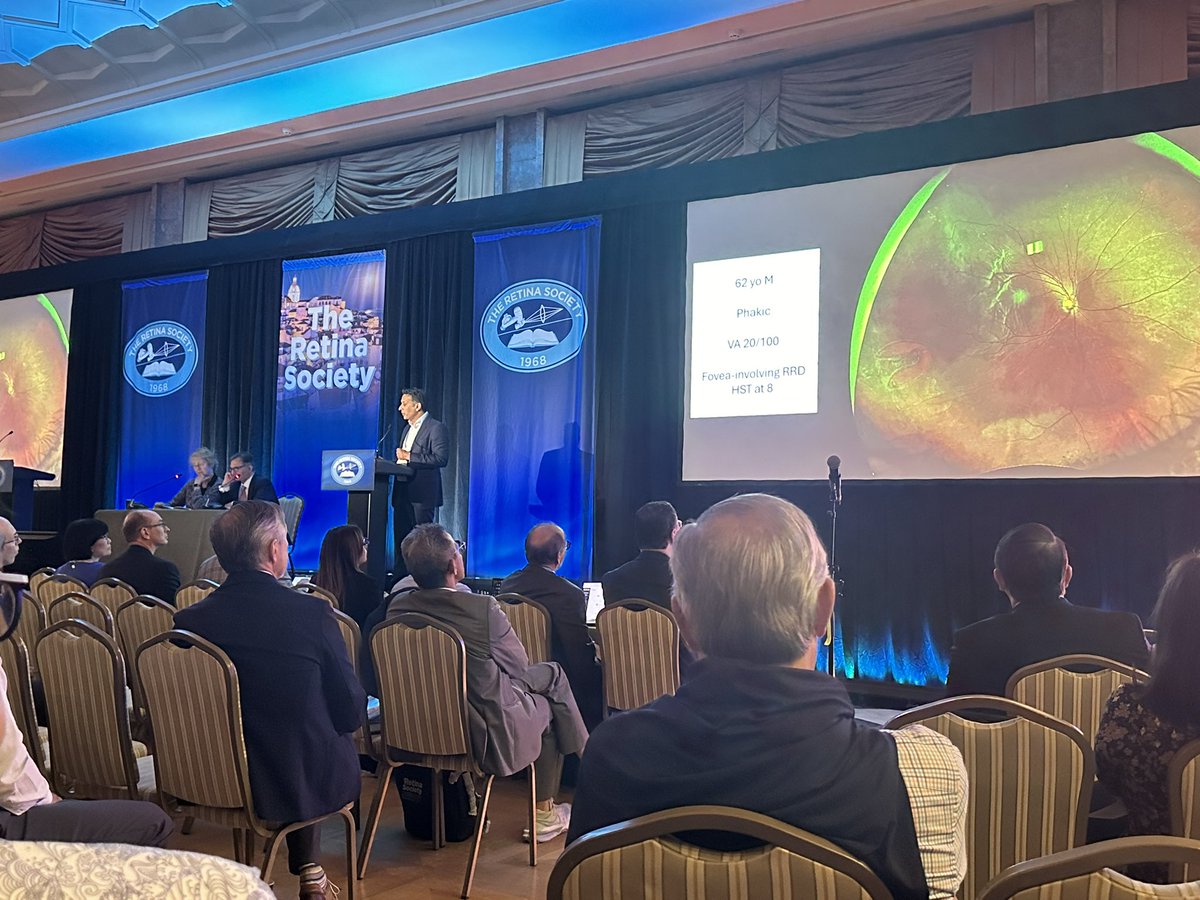

Fantastic diabetic retinopathy session at #RSLisbon2024 with three great talks focusing on health disparities and inequities in diabetic retinopathy by Dr. Kristen Nwanyanwu MD, MBA, MHS, Brian VanderBeek, and Anjali Shah TheRetinaSociety


Outstanding talk by Prithvi_Mruthyunjaya at #RSLisbon2024 on his study of using aqueous humor to determine metastatic risk potential of uveal melanoma TheRetinaSociety


Phase 2 trial of bel-sar for choroidal melanoma showed 80% local tumor control rate with 90% having vision preservation and a very good safety profile presented by Ivana Kim at #RSLisbon2024 TheRetinaSociety


Smaller ellipsoid zone lesion size, younger age, and lack of foveal involvement portended a greater reduction in disease progression with NT-501 (encapsulated cell technology) for macular telangiectasis type 2. Presented by Anthony Capone at #RSLisbon2024 TheRetinaSociety
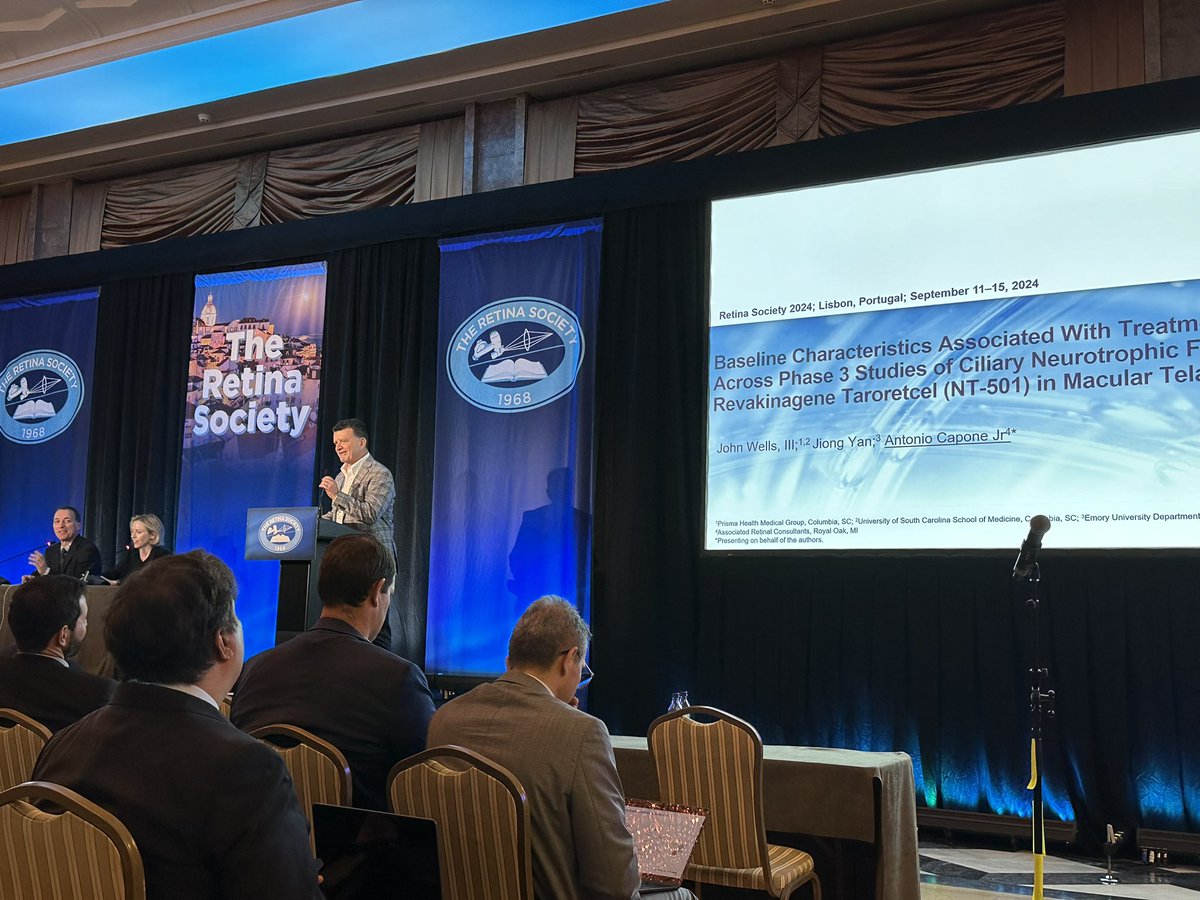

Genome wide association study found central serous retinopathy was associated with vascular endothelial protein tyrosine phosphatase which is modulated by faricimab. Elizabeth Rossin presented a small case series showing fluid resolution with faricimab injections #RSLisbon2024


Fascinating study on use of intravitreal methotrexate and rituximab for treatment of bilateral diffuse uveal melanocytic proliferation presented by Jasmine Francis at #RSLisbon2024, showing potential for long term vision improvement and preservation. TheRetinaSociety


Study of real world use of Eylea HD by >300 retina docs showed mean extension of 14 days by the 4th EHD injection compared to interval prior to being switched. Low rates of adverse events. Presented by Michael Klufas at #RSLisbon2024 TheRetinaSociety Mid Atlantic Retina Wills Eye Hospital
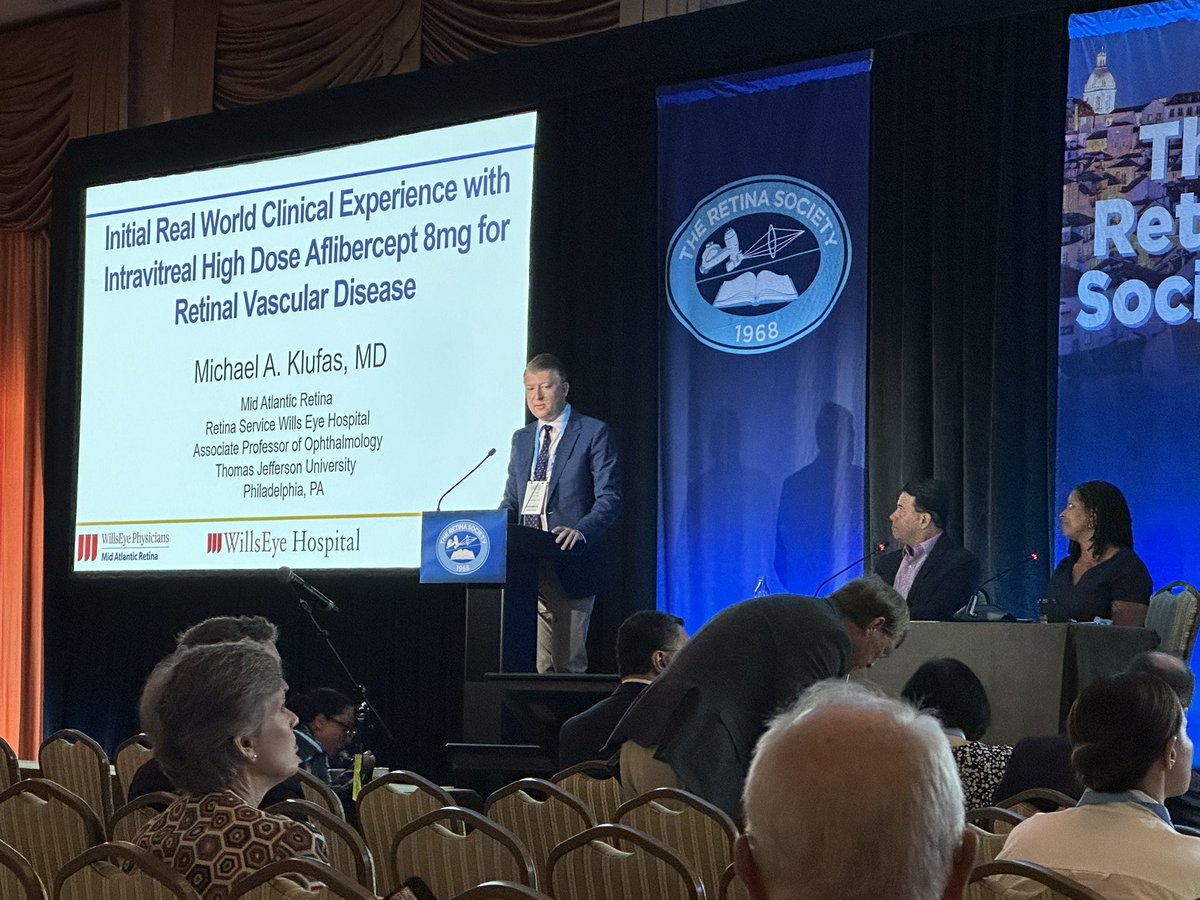

Phase 2 subretinal gene therapy of ABBV-RGX-314 in previously treated wet AMD showed good tolerance with few cases of inflammation responsive to steroid drops + stable vision and edema with over 70% injection free over 6 mos. Dr Allen Ho #RSLisbon2024 TheRetinaSociety Wills Eye Hospital
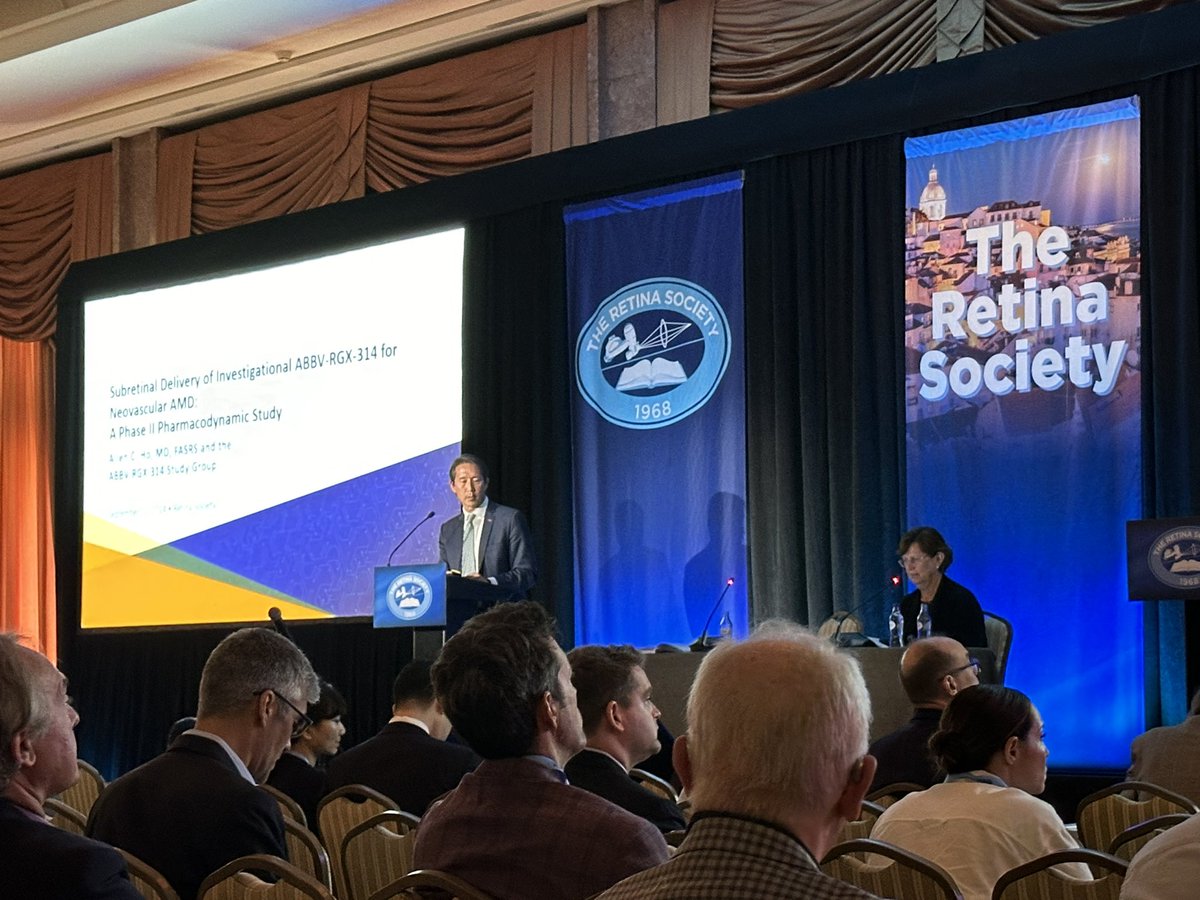

Faricimab associated with greater reductions in pigment epithelial detachment. Better early drying of fluid associated with greater likelihood of extension to 16 weeks. Over 50% could have been extended to 20 weeks. Terrific talks at #RSLisbon2023 TheRetinaSociety John D Pitcher III MD
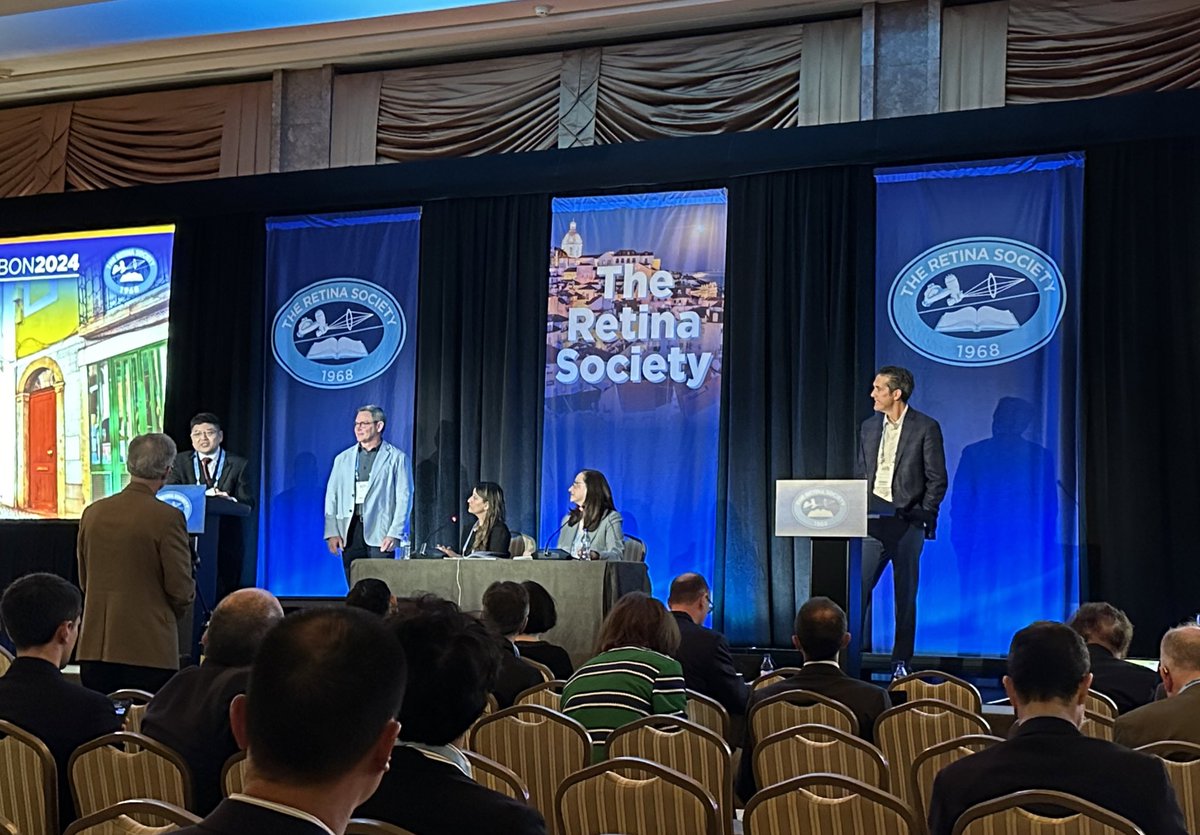

Metformin use shown to be associated with lower risk of new #AMD and dry AMD. Presentation at #RSLisbon2024 by Dmitra Skondra shows association between metformin use and 47% reduced odds of geographic atrophy in patients without diabetes TheRetinaSociety

Use of levodopa was associated with 32% reduced development of new-onset geographic atrophy. It may dilate choroidal vasculature or reduce oxidative stress. However difficult to determine effect of Parkinson’s. Presented by Jeremy Lavine at #RSLisbon2024 TheRetinaSociety


In patients with high genetic risk for #AMD progression, healthy lifestyle behaviors could still lower risk of advanced AMD. 55-60% of development of advanced AMD is due to these lifestyle factors. Presented by Joanna Seddon at #RSLisbon2024 TheRetinaSociety
